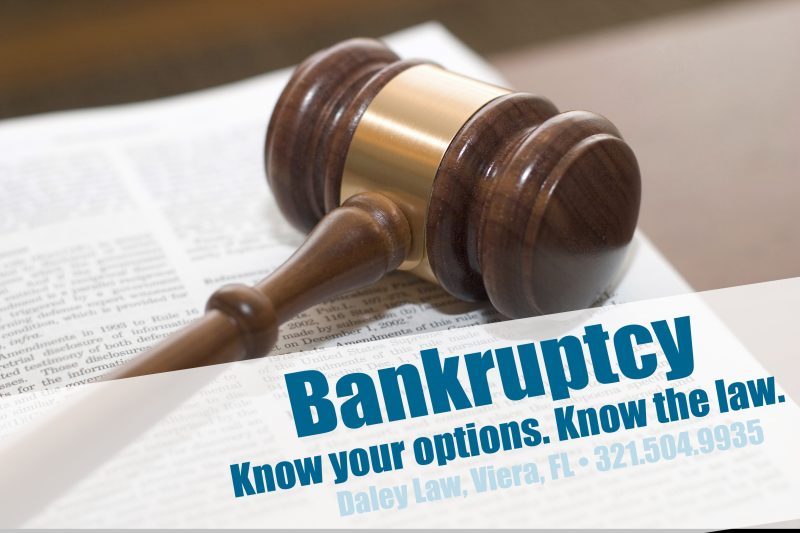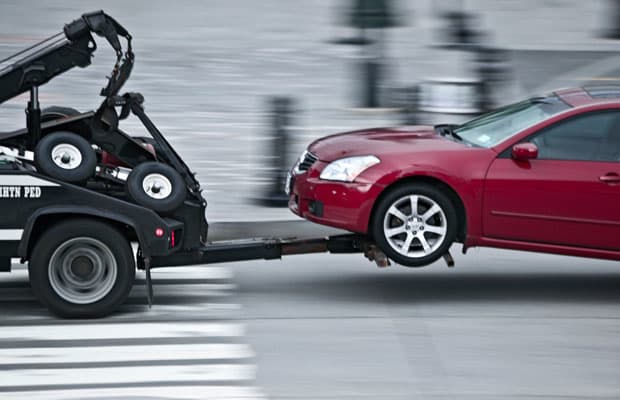Bankruptcy can seem like a scary alternative. The word itself has a bad ring to it. Unfortunately, the media contributes to this ominous feeling with nightmare tales of large companies falling victim to bankruptcy. The long list of bankruptcy tales runs from personal to corporate from John Doe to Donald Trump.
And of course, the latest gossip magazines never forget to dish the dirt on the latest celebrities filing for bankruptcy. You may even hear the quote “you’re a few choices away from going under”.
After all, we do live in a society in which credit card mailers are constantly flooding our mail boxes with offers and promotions. Haven’t you heard that debt is an accepted norm? But, how can you tell when the debt has finally reached the tipping point where it is time to consider bankruptcy yourself?
The following seven questions will help you assess how far down you are into the financial danger zone:
- Are you only able to make the minimum payments on your credit card month every month?
- Do you constantly receive calls from bill collectors?
- Do you fear the thought of sorting out your finances?
- Are you using your credit cards to pay for necessities?
- Have you considered debt consolidation over the state of your finances?
- Are you fully aware of how much you actually owe?
Let's Assess Your Situation
If you answered yes to two or more of our financial danger zone questions above, you should give your finances a little more thought and attention. To put this simply, the necessity to file bankruptcy can be classified as owing more than you can afford to pay.
In order to accurately determine where you are financially, a great place to start is a financial inventory of all of your liquid assets. This inventory should include retirement funds, stocks, bonds, real estate, vehicles, college savings accounts, and other non-bank account funds. Determining a rough estimate for each is sufficient for determining your financial situation accurately.
Next, you will want to collect and add up all of your bills including credit statements. This is usually when the fear begins to set in. If the overall value of your assets is less than the amount of debt you owe, bankruptcy may be a viable option for your current financial situation. However, this should not be approached casually.
How Do I Declare Bankruptcy?
Bankruptcy can take place in one of two ways. You can either take the proactive approach and file for bankruptcy willingly, which is the more common route. Or, your creditors may ask the court to order you to file bankruptcy. The latter is rare.
There are a few different choices when filing bankruptcy – Chapter 7 or Chapter 13 Bankruptcy. Of course, there are pros and cons to each. The Law Office of Brent M. Myer, PLLC does recommend consulting with a lawyer before proceeding to help you determine the best fit for your circumstances.
Chapter 7 Bankruptcy
There are quite a few reasons why people choose to file for Chapter 7 bankruptcy. Common reasons for needing to file for bankruptcy are unemployment, large medical expenses, abundantly overextended credit, and sometimes martial problems. Chapter 7 Bankruptcy is often referred to as “straight bankruptcy”. Chapter 7 Bankruptcy includes the process of liquidating your assets in order to pay off as much debt as possible. The cash received from the liquidation of your assets will then be distributed to your creditors for payment. However, exempt property is not subject to liquidation. An experienced bankruptcy attorney can advise you whether any of your property would be subject to liquidation in a Chapter 7 case.
You will receive a discharge of your debts approximately four months after filing the case. The bankruptcy case will appear on your credit report for 10 years following the filing process. However, this is not amount to a financial “death sentence.” In fact, many Chapter 7 Bankruptcy filers have purchased homes with recent bankruptcies on their record. Fortunately, many filers find Chapter 7 a quick, fresh start.
However, Chapter 7 bankruptcies are not right for everyone. If you own property which is subject to liquidation which you cannot bear to part with then Chapter 7 is not the right option for you. It is important you consult a bankruptcy attorney about whether any of your property is subject to liquidation when considering Chapter 7. In addition, Chapter 7 will not prevent a home foreclosure or vehicle repossession.
Chapter 13 Bankruptcy
For those interested in saving property subject to liquidation in Chapter 7 or stopping a home foreclosure or vehicle repossession, filing Chapter 13 bankruptcy is the more appropriate option.
Chapter 13 bankruptcy allows you to pay creditors over a period of three to five years. In effect, Chapter 13 bankruptcy is a debt consolidation with the weight of the Bankruptcy Court behind it. However, your payments may only result in a portion of the debt being paid. Any unpaid amount of the debt is discharged upon completion of the Chapter 13 payments.
You can catch house and car payments through the Chapter 13 payments. Thus, stopping a foreclosure action and preventing a repossession of your vehicle. And, you don’t have to worry about losing property otherwise subject to liquidation in Chapter 7. An experienced bankruptcy attorney can advise you whether Chapter 13 bankruptcy is appropriate in your case.
You will receive a discharge of your debts approximately four months after filing the case. The bankruptcy case will appear on your credit report for 10 years following the filing process. However, this is not amount to a financial “death sentence.” In fact, many Chapter 7 Bankruptcy filers have purchased homes with recent bankruptcies on their record. Fortunately, many filers find Chapter 7 a quick, fresh start.
However, Chapter 7 bankruptcies are not right for everyone. If you own property which is subject to liquidation which you cannot bear to part with then Chapter 7 is not the right option for you. It is important you consult a bankruptcy attorney about whether any of your property is subject to liquidation when considering Chapter 7. In addition, Chapter 7 will not prevent a home foreclosure or vehicle repossession.
Declaring Bankruptcy: Scary, But Sometimes Necessary
At the Law Office of Brent M. Myer, PLLC, we understand it can be hard to admit you need help. However, that is why our government has bankruptcy laws. If you have an overwhelming amount of debt, it may be time to consider your bankruptcy options. Like many others, you may have been trying to ignore calls from debt collectors and the building stack of unpaid bills that just won’t seem to disappear.
While this may seem like the easier choice, you may be doing yourself and your family a disservice by not filing for bankruptcy. Filing bankruptcy may finally give you the financial solution you have been looking for – a fresh start.
If you’re considering bankruptcy, it’s important to understand your options. Call today for a free consultation with the Law Office of Brent M. Myer, PLLC. and take the first step toward your financial fresh start.



